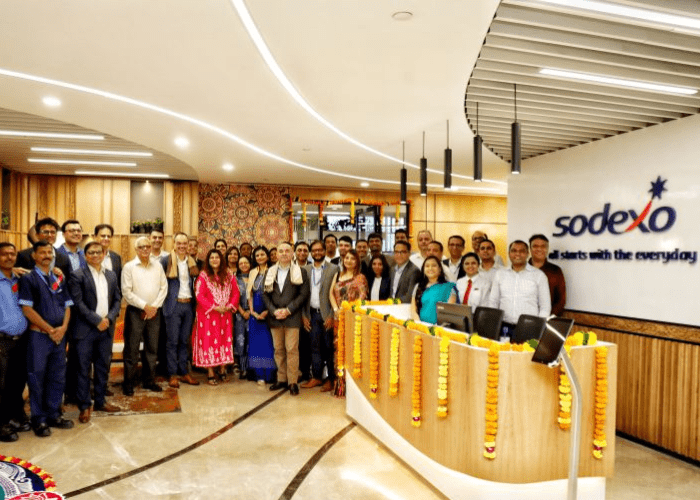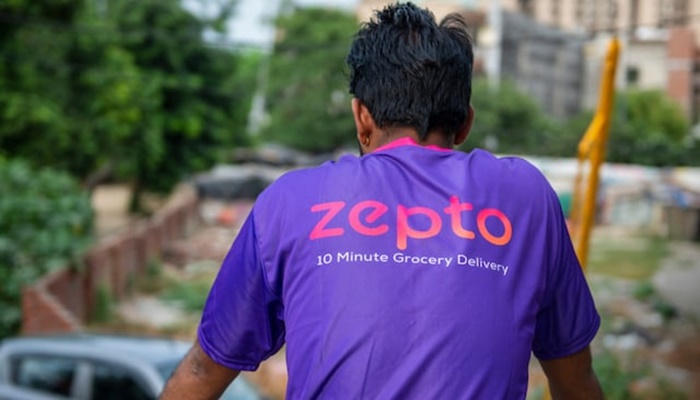In corporate India, the idea of climbing the proverbial ladder has long defined success. But for the non-conformist Gen Z—the digital natives now entering the workforce in large numbers—such a traditional view of ambition doesn’t hold much meaning.
Success metrics are changing today. The goal for many young professionals is no longer to lead teams or claim a cabin at work. Instead, it’s about having careers that prioritise autonomy, flexibility, and mental well-being. This shift, often described as ‘conscious unbossing’, is changing the very idea of work and leadership structure at the workplace.
“Gen Z professionals are reimagining success,” says Sudipta Sengupta, Founder and CEO of health information and fact-checking platform, The Healthy Indian Project (THIP). “The focus has shifted to job satisfaction, personal growth, and mental well-being, which means climbing the corporate ladder is becoming less relevant for many.”
At THIP, Sengupta and his team are consciously creating an environment where success is seen through the lens of learning opportunities and impact, not just promotions or pay raises.
The idea of managing a team doesn’t appeal to 25-year-old Sanya Mehta, a user experience designer at a Bengaluru-based tech startup. “I enjoy helping interns but I don’t want a role where I’m constantly in meetings, dealing with HR issues, and managing timelines. I want to grow in craft, not just climb into chaos,” she says.
This is a sentiment echoed by many Gen Z professionals. To be clear, they aren’t averse to leadership or are running away from responsibilities, but they want to redefine the way leadership is approached.
“They want ownership, but with clarity and support,” explains Sahil Sharma, Chief Human Resources Officer at RateGain, a global provider of AI-powered travel and hospitality SaaS solutions. “We see younger employees seeking roles where they can make a tangible difference, contribute to inclusive projects and grow without being confined to rigid structures. They want to move forward, but on their own terms.”
He adds, “Gen Z isn’t opting out of leadership. They are reimagining it. And that means giving them space to lead without losing themselves.”
Conscious rejection of burnout
Kunal Arora, a 26-year-old marketing associate in Mumbai, turned down a recent offer to become a team lead. He doesn’t regret doing this. In fact, it felt relieving, he says. “I saw my manager working even on weekends, juggling client demands, managing conflicts and still getting blamed for everything,” he says, adding emphatically, “That’s not leadership to me.”
This growing disenchantment with people management stems largely from what Gen Z has witnessed over the last few years: burnout in their seniors, blurred boundaries, and work that spills endlessly into personal time.
“They value their mental health and work-life balance more than the prestige of a title,” says Sengupta. “At THIP, we are actively working on creating a more supportive environment that reduces these pressures, focusing more on collaborative leadership and shared decision-making.”
Bhakti Talati, a work-life balance coach and resume building strategist, puts it plainly: “Gen Z has grown up watching their parents, elders, or siblings always on work calls, sacrificing weekends, or struggling to switch off. That kind of relentless hustle has left a mark.”
She points out that Gen Z’s relationship with work is different. “They have never had to struggle like their previous generations. They are shaped by a different reality, one that includes greater comfort, faster access to information, and more choices.
“For them, success is aligned with values, autonomy, freedom, flexibility, and work that allows them to grow at their own pace. I don’t think it’s as much a disillusionment as it is an evolved perspective and choice they are making for themselves.”
Shifting structures
The trend of conscious unbossing, where leadership moves away from authority into shared influence, is gradually reshaping how companies view growth.
“At our company, we have been moving towards a model where employees can design their own career trajectories with the support of mentors, enabling growth in ways that resonate with their personal values and goals,” says Sengupta.
This is where Indian workplaces may soon follow global examples.
Mamta Mohapatra, Professor of Organisational Behaviour and Human Resources at IMI Delhi, cites a few examples, “Spotify’s squad model entrusts small cross-functional teams with end-to-end ownership, bypassing rigid hierarchies. GitLab’s remote-first culture operates without traditional managers, relying on transparent documentation and peer reviews.”
Organisations may offer dual career tracks for employees—technical and managerial—so that Gen Z can choose the path they want to progress in.
For example, a software firm may offer a ‘principal engineer’ pathway, which is parallel to team lead roles. Or it can grant leadership roles for high-impact initiatives, ensuring people advance in their careers based on the projects they take up.
“These models deliver autonomy, clear recognition, and purposeful growth, matching Gen Z’s demand for flexibility and impact,” says Mohapatra.
At RateGain, Sharma says, this is already happening. “We emphasise cross-functional exposure, mobility, and project-based growth. Gen Z wants a system where discipline is respected but not confused with rigidity.”
Unsurprisingly, new-age companies like RateGain are providing space for reflection, self-awareness, and mental wellness to nurture leaders who are more empathetic and resilient.
Different career aspirations
All this does not mean ambition is dead among young working professionals. It’s very much alive, just that it looks different and does not fit into a traditional mould.
Tanisha Rao, a 27-year-old working with a pharmaceutical MNC in Hyderabad, says she does want to be in leadership roles—but not ones that command or demand.
“I don’t want to mimic the grind culture I’ve seen. I want to build something without burning out. I want coaching, not commanding.”
Work-life balance coach Talati believes Gen Z wants growth that is sustainable, meaningful and reflective of their values. “While the grind may be less glorified today, sometimes it’s necessary. They just want to do it on their own terms.”
The duality—of ambition and boundary—is what makes Gen Z’s approach to work distinctive. They are not shunning effort but questioning the return on investment when the price is mental exhaustion. For them, the trade-offs that defined millennial career trajectories are no longer acceptable.
However, flat structures at the workplace don’t mean free-for-all.
As Sharma puts it, “Gen Z is highly driven. They want fairness, clarity, and emotionally intelligent leadership. We are already seeing these behaviours in action and they are key to building cultures that are both high-performing and human.”
The future of leadership
Ultimately, conscious unbossing isn’t a rejection of leadership, it’s a redesign. It’s about choosing a more intentional path. Gen Z folks want to lead but without losing their peace, values or voice.
If organisations can meet them there, with flexible structures, an empathetic approach, and opportunities for purpose-led growth, they won’t just retain top talent but also future-proof their leadership pipeline.
As Mehta says, “I am not saying I’ll never lead; I just want to do it in a way that doesn’t break me.”
In a world where burnout is common and belonging is rare, this may be the most conscious decision of all.
Source – https://yourstory.com/ys-life/gen-z-concious-unbossing-at-work




















